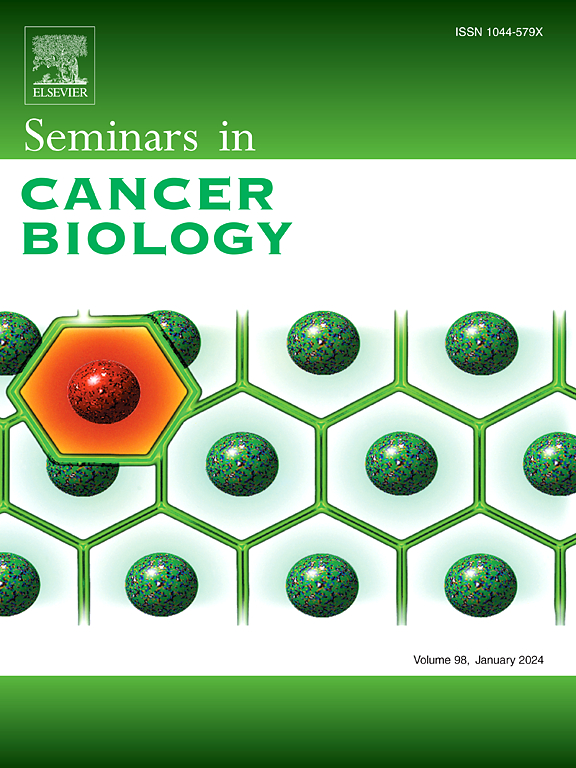Genomic instability, DNA damage response and telomere homeostasis in pancreatic cancer
IF 12.1
1区 医学
Q1 ONCOLOGY
引用次数: 0
Abstract
Pancreatic cancer (PC) is becoming one of the most serious health problems at present, but its causes and risk factors are still unclear. One of the drivers in pancreatic carcinogenesis is altered genomic (DNA) integrity with subsequent genomic instability in cancer cells. The latter comprises a) DNA damage response and DNA repair mechanisms, b) DNA replication and mitosis, c) epigenetic regulation, and d) telomere maintenance. In our review we addressed the above aspects in relation to the most abundant and severe form of PC, pancreatic ductal adenocarcinoma (PDAC). In summary, the interactions between the DNA damage response, telomere homeostasis and mitotic regulation are not comprehensively understood at present, including the epigenetic factors entering the trait of genomic stability maintenance. In addition, the complexity of telomere homeostasis in relation to PDAC risk, prognosis and prediction also warrants further investigations.
胰腺癌的基因组不稳定性、DNA损伤反应和端粒稳态
胰腺癌(PC)是目前最严重的健康问题之一,但其病因和危险因素尚不清楚。胰腺癌发生的驱动因素之一是癌细胞基因组完整性的改变和随后的基因组不稳定。后者包括a) DNA损伤反应和DNA修复机制,b) DNA复制和有丝分裂,c)表观遗传调控和d)端粒维持。在我们的回顾中,我们讨论了与最丰富和最严重的PC形式胰腺导管腺癌(PDAC)相关的上述方面。综上所述,DNA损伤反应、端粒稳态和有丝分裂调控之间的相互作用,包括进入基因组稳定性维持性状的表观遗传因素,目前尚不完全清楚。此外,端粒动态平衡与PDAC风险、预后和预测的复杂性也值得进一步研究。
本文章由计算机程序翻译,如有差异,请以英文原文为准。
求助全文
约1分钟内获得全文
求助全文
来源期刊

Seminars in cancer biology
医学-肿瘤学
CiteScore
26.80
自引率
4.10%
发文量
347
审稿时长
15.1 weeks
期刊介绍:
Seminars in Cancer Biology (YSCBI) is a specialized review journal that focuses on the field of molecular oncology. Its primary objective is to keep scientists up-to-date with the latest developments in this field.
The journal adopts a thematic approach, dedicating each issue to an important topic of interest to cancer biologists. These topics cover a range of research areas, including the underlying genetic and molecular causes of cellular transformation and cancer, as well as the molecular basis of potential therapies.
To ensure the highest quality and expertise, every issue is supervised by a guest editor or editors who are internationally recognized experts in the respective field. Each issue features approximately eight to twelve authoritative invited reviews that cover various aspects of the chosen subject area.
The ultimate goal of each issue of YSCBI is to offer a cohesive, easily comprehensible, and engaging overview of the selected topic. The journal strives to provide scientists with a coordinated and lively examination of the latest developments in the field of molecular oncology.
 求助内容:
求助内容: 应助结果提醒方式:
应助结果提醒方式:


